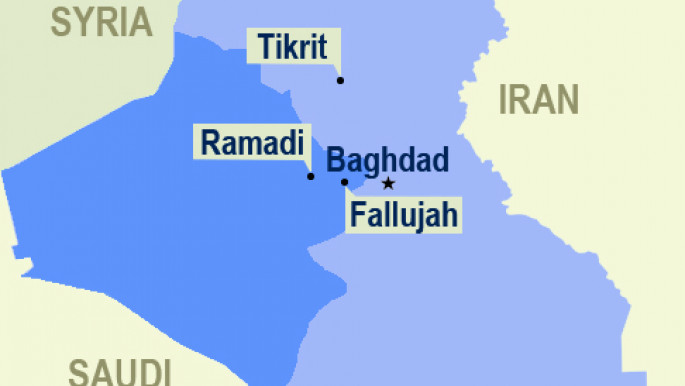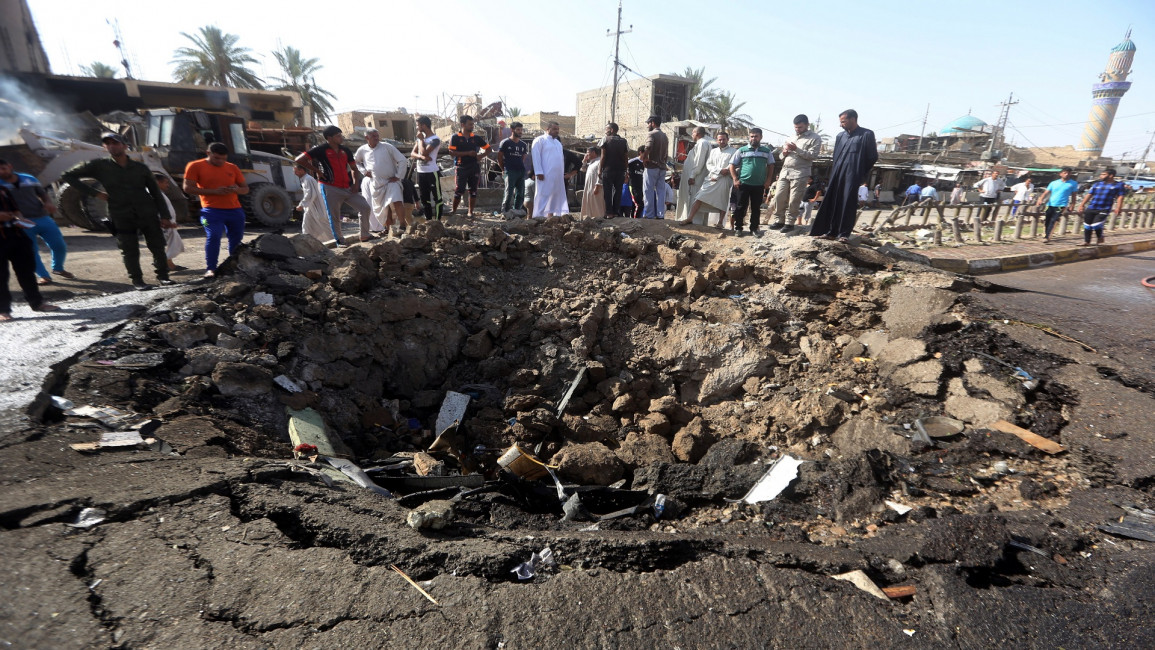IS attacks divert Iraqi forces, leaving Baghdad vulnerable
Car bomb attacks in Baghdad and the Iraqi province of Diyala, mostly claimed by the Islamic State jihadist group, have killed at least 30 people, police and medical sources said Wednesday.
The deadliest of the attacks was in the Iraqi capital's eastern district of Baghdad al-Jadida, a predominantly Shiite area that has been one of the most targeted by car bombs in recent years.
The Islamic State (IS) group claimed responsibility for both attacks, saying they had targeted Shiite militiamen, a claim it often makes even when most of the victims are civilians.
At least 19 people were killed and 43 wounded when a car bomb exploded near a market there on Tuesday, a police colonel and hospital sources said. Another four people were killed and 10 wounded in a similar attack in the southern neighbourhood of Zafaraniya.
A car bomb also struck a joint police and army checkpoint in Tarmiya, a town which lies on of the main highways north of Baghdad, police said.
At least three members of the security forces were killed and nine wounded. 
Also on Tuesday, a car bomb went off in Mandali, a town in the eastern province of Diyala which lies near the border with Iran, killing at least four people.
A huge suicide car bomb attack claimed by IS killed dozens of people in Khan Bani Saad, a town just north of Baghdad, on Friday.
Baghdad announced in January that Iraqi forces had "liberated" Diyala, significant parts of which had been overrun by IS after the jihadists launched a brutally effective offensive in June 2014.
The jihadists no longer have fixed positions in the province but have reverted to their old tactics of planting car bombs and carrying out suicide operations or hit-and-run attacks.
Withdrawing forces from Baghdad
IS has managed to force the withdrawal of security forces and pro-government militias to Anbar and Salaheddine battlegrounds, causing security problems in Baghdad and other provinces.
The security gap left behind has given IS the chance to strike the centre of the capital. The government is being blamed for mismanaging the war against IS. Security expert, Watheq al-Abidi, told al-Araby al-Jadeed that "IS was able to push Iraqi forces to battlefronts, leaving a security hole in Baghdad".
"IS has strategic depth in its war tactics. Having enough resources, it can manoeuvre and attack several fronts," he added. Al-Abidi asked the Iraqi government to admit its inability to resist IS on its own, and suggested calling for "the support of international forces rather than local and regional sectarian militias".
The battle for Anbar and Fallujah that was announced on July 13 led to moving most of the security forces from Baghdad to the battlefronts. While the operation has stalled, pro-government militias and security forces cannot withdraw from the battleground because that would significantly harm the morale of the fighters and the war momentum against IS.
Batch of US F-16 fighter delivered to Iraq
In a long-awaited morale boost, a much-delayed batch of US F-16 fighter jets flew to Iraq Monday, a delivery that should enhance the capacity of the country's embattled military.
Iraq has long wanted US F-16s to support its ground troops against IS. But, the ongoing fighting and disagreements delayed the delivery. In a ceremony at Balad Air Base, Iraq finally took delivery of four of the 36 jets it ordered. Iraqi Prime Minister Haider al-Abadi said the F-16s would help Iraq defeat IS.



